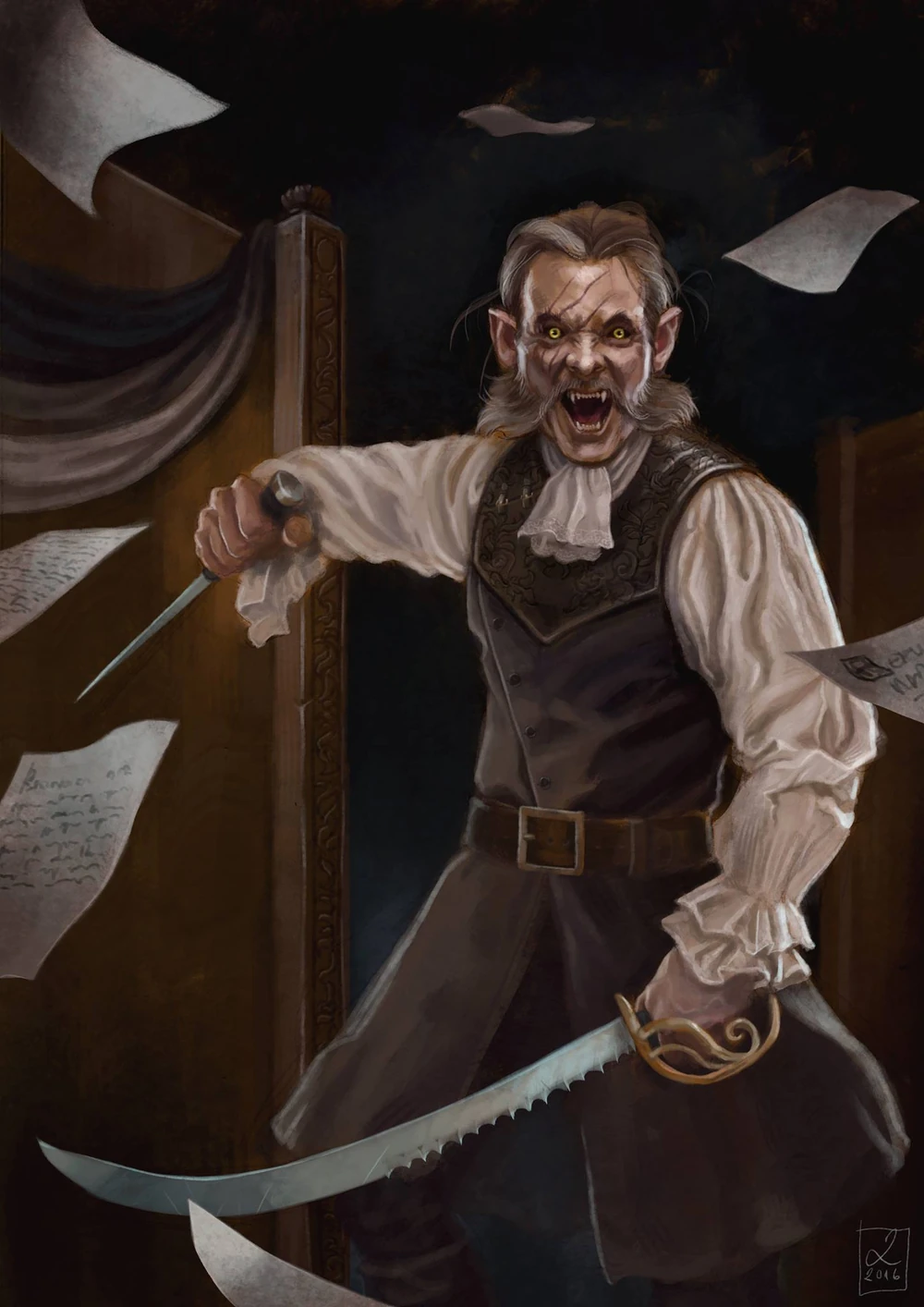From the Diary of Johan Zol — 12th Day of Felinose
This day has left a deep impression upon me, and I shall now endeavor to set down the events that have occurred, although I have but a few moments before we are to depart for our swimming lesson; and afterwards, instead of sleep, we are to attend the Nightly Assembly of the Group for the Study of Patriotic Moral Themes under the supervision of our educator in law — an engagement at which punctuality is imperative.
Our first lesson in locksmith’s craft with the werewolf citizen Fulson, since the death of Lore, passed under a strange and solemn atmosphere. Some of the children halted on the road as we approached Fulson’s workshop, turning pale and refusing to come nearer to the werewolf — thinking of his sharp teeth, his yellow eyes, the fur upon his cheeks, the pointed ears, and the tail — fearing that they might meet the same fate as Lore.
In Atrolen, the death of Lore is spoken of far more than the destruction of the former princes, of which we have heard tidings from Eustata. Of that great and joyous event, only the members of the Club of Virtue and of the Republic, and the Hrebsovites, now speak — always with radiant delight and with the waving of fists in every occasion.
The dreadful image that fills every mind — spread by those who first found the poor girl’s body — is that her liver had been torn from her belly and surely eaten, since among werewolves the liver and the heart are said to be the most delicious parts of a human being.
In the workshop of the werewolf, upon whose walls — beside dozens of latches and padlocks — hung framed proclamations, a Republican calendar, and the busts of Henscher and Schmeck, which the locksmith had dearly purchased from a merchant of Brelsing, who, immediately after the liberation of Alvald, came bearing a whole balloon of Republican insignia, risking his life by flying through the enemy’s air blockade,
— in that workshop, not a single word was spoken of Lore. Yet everyone was thinking of her, even those children who, wishing to show themselves free of superstition, displayed toward our educator — the werewolf, with the curious black streak parting his thick brownish-grey hair — an even greater respect than usual, striving with exceptional zeal to memorize and repeat every precise movement of the locksmith’s craft that he demonstrated so diligently.
(Though I knew well that some among them were so diligent only because they hoped to earn a pinch of werewolf’s tobacco from the celebrated Fulson’s snuffbox, the one with the painted owl and the word Wisdom upon it.)
This was no wonder, for we all know the opinion held by the peasants of Atrolen — indeed, by most folk throughout Alvald — an opinion well known to every child, especially those of Atrolen who see their parents every day.
Almost all are certain that Citizen Fulson’s friend, the werewolf Farkasen, in whose house Lore was found, is guilty of her murder, and that he was set free only because he, like Citizen Fulson, was a Henscherite.
The news that Farkasen had been acquitted because a gray werewolf’s hair was found upon Lore’s corpse, while he himself has fur entirely black, convinced the village of his innocence for but a few hours — until Hans Gaber, the innkeeper, a man of great respect in the village, said that he knew well from the time of the old regime how easy it is for the police to plant or remove a piece of evidence when they wish to accuse the innocent or protect the guilty.
After that, all became persuaded that the police had indeed planted the gray hair so that Farkasen, a member of the Club for Virtue and the Republic, might be spared through the influence of his powerful comrades.
To the objection of certain villagers — that this, precisely, was the difference between royalism and Republicanism, and that the Club for Virtue and the Republic ought to have shown the highest example of Republican love of justice by being the first to demand the destruction of its own member who had broken the Republican law, rather than to protect him as the nobles and the king’s men once protected one another and their servants — Hans Gaber replied with great conviction that authority is authority, and that there exists no reason to believe one government would act differently from another.
As for Farkasen himself, the Chief Educator has decided that, since he is innocent before the law, there is no reason why he should not continue to lead children on nature excursions. I see that many of my friends await with fear the coming quartidi, when our next Farkasen outing is scheduled.
Lorans says that some children are planning to hide themselves on that day, no matter the consequences.
I think it is unwise for them to act so.
The bell for swimming is ringing; I shall write no more today, but tomorrow I will set down the things I have not had time for now.




